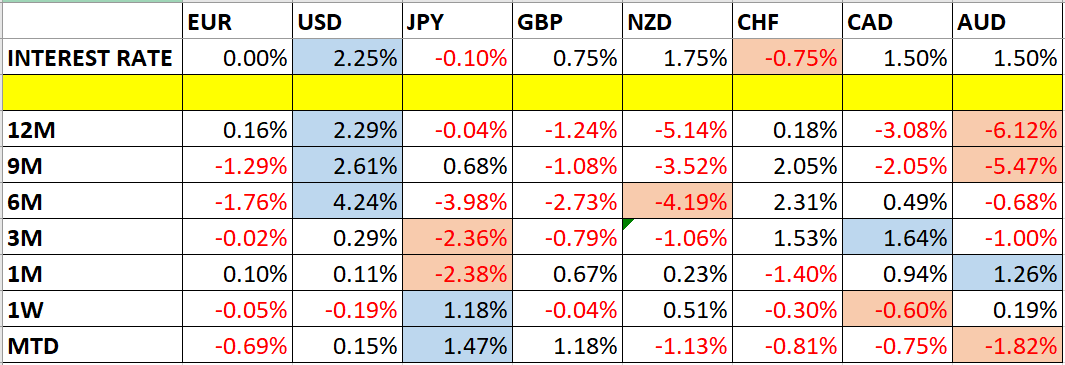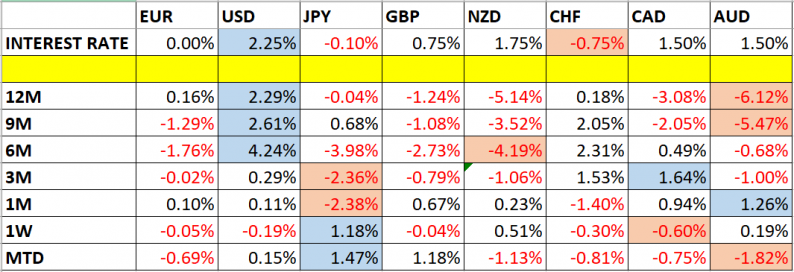This week we’ll begin with our monthly and weekly forecasts of the currency pairs worth watching. The first part of our forecast is based upon our research of the past 16 years of Forex prices, which show that the following methodologies have all produced profitable results:
Let’s take a look at the relevant data of currency price changes and interest rates to date, which we compiled using a trade-weighted index of the major global currencies:

Monthly Forecast October 2018
For the month of October, we forecast that the best trade will be long USD/JPY. The performance to date is as follows:
Currency Pair
Forecast Direction
Interest Rate Differential
Performance to Date
USD/JPY
Long ?
2.35% (2.25% – -0.10%)
-1.29%
Weekly Forecast October 14
Last week, we made no weekly forecast.
We make no weekly forecast this week, as there were no strong counter-trend price movements last week.
Fewer than 15% of the important currency pairs or crosses moved by more than 1% in value over the past week. This volatility is low, but we expect it to be at least a little higher over the coming week.
This week has been dominated by relative strength in the Japanese Yen, and relative weakness in the Canadian Dollar.
Previous Monthly Forecasts
You can view the results of our previous monthly forecasts here.
Key Support/Resistance Levels for Popular Pairs
We teach that trades should be entered and exited at or very close to key support and resistance levels. There are certain key support and resistance levels that should be watched on the more popular currency pairs this week, which might result in either reversals or breakouts:














Leave A Comment